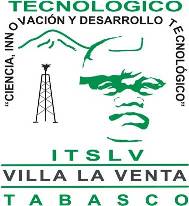Como norma general, el plural se forma añadiendo -s a la forma singular: Book, books / Libro, libros Chair, chairs / Silla, sillas Car, cars / carro, carros bone, bones / hueso, huesos size, sizes / tamaño, tamaños line, lines / línea, líneas |
EXCEPCIONES
- Cuando la palabra termina en s, ss, x, ch, sh se le añade -es al final.
Bus, Buses / Autobús, autobuses Glass, glasses / Vaso, vasos
Fox, foxes / Zorro, zorros Church, churches / Iglesia, iglesias
Dish, dishes / Plato, platos kiss, kisses / beso, besos
radish, radishes / rábano, rábanos peach, peaches / durazno, duraznos
- Cuando termina en -o precedida de consonante se le añade -es también, aunque hay algunas excepciones (palabras de origen no inglés, como piano, pianos)
Tomato, tomatoes / Tomate (s) Potato, potatoes / Patata (s)
hero, heroes / héroe, héroes volcano, volcanoes or volcanos / volcán, volcanes
piano, pianos / piano, pianos photo, photos / foto, fotos
radio, radios / radio, radios video, videos / video, videos
- Cuando terminan en -y precedida de consonante se sustituye la -y por la terminación -ies.
Story, stories / Historia (s) Lady, ladies / Señora (s) Fly, flies / Mosca (s)
- Algunas palabras que terminan en -f o -fe cambian la -f / -fe por -ves.
Knife, knives / Cuchillo (s) Life, lives / Vida (s) Wife, wives / Esposa (s)
Wolf, wolves / Lobo (s) Thief, thieves / Ladrón (s) Half, halves / Mitad (es)
(Hay algunas excepciones a esta regla, como roof, proof, chief, safe y cliff, que forman el plural añadiendo -s al final de la palabra)
- Plurales irregulares
Man, men / Hombre (s) Woman, women / Mujer (es) Child, children / Niño(s)
Foot, feet / Pie (s) Tooth, teeth / Diente (s) Ox, oxen / Buey (es)
Mouse, mice / Ratón (es) Goose, geese / Ganso (s) Louse, lice / Piojo (s)
Penny, pence / Penique (s) Dormouse, dormice / Lirón (es)
- Algunos sustantivos tienen únicamente forma singular:
Deer / Ciervo(s) Sheep / Oveja(s)
Fish / Pez (peces) aunque existe el plural Fishes, lo cual es usado cuando se refiere a diferentes tipos de peces.
- Algunos sustantivos tienen solamente la forma plural
Goods / Mercancías Scissors / Tijeras Trousers / Pantalones
Glasses / Gafas Pyjamas / Pijama Clothes / Ropa Thanks / Gracias
- En los nombres compuestos (sustantivos formados por dos palabras que juntas toman una significación única) solamente el segundo sustantivo toma la forma de plural.
Summer holiday, summer holidays / Veraneo(s)
Armchair, armchairs / Sillón (es)
En cambio, cuando se forman con preposiciones o adverbios el plural recae en el primer sustantivo.
Maid of honour, maids of honour / Dama(s) de honor
Brother in law, brothers in law / Cuñado(s)
Y si incluyen la palabra man o woman, los dos sustantivos forman el plural.
Manservant, menservants / Criado(s)
- OJO con los adjetivos. Recuerda que únicamente tienen forma singular.
Red, Good, Easy, Beautiful ...

| A | B |
|---|
| mouse | mice |
| woman | women |
| house | houses |
| ox | oxen |
| friend | friends |
| sheep | sheep |
| door | doors |
| church | churches |
| potato | potatoes |
| cat | cats |
| cow | cows |
| mosquito | mosquitoes |
| man | men |
| child | children |
| story | stories |
| store | stores |
| watermelon | watermelons |
| sister-in-law | sisters-in-law |
| smile | smiles |
| meter | meters |
| fox | foxes |
| cross | crosses |
| staple | staples |
| farm | farms |
| computer | computers |
| teacher | teachers |
| country | countries |
| loaf | loaves |
| life | lives |
| chief | chiefs |
| foot | feet |
| deer | deer |
| fish | fish |
| bus | buses |
| thirty | thirties |
| bluff | bluffs |
| thief | thieves |
| home | homes |
| sky | skies |
| city | cities |
| waste | wastes |
| problem | problems |
| factory | factories |
| river | rivers |
| turkey | turkeys |
| day | days |
| tax | taxes |
| night | nights |
| car | cars |
| business | businesses |
| spy | spies |
| cloud | clouds |
| farmer | farmers |
| kitten | kittens |
| product | products |
| highway | highways |
| toy | toys |
| lady | ladies |
| gentleman | gentlemen |
| nose | noses |
| pepper | peppers |
| oven | ovens |
| mess | messes |
| lion | lions |
| owl | owls |
| mountain | mountains |
| cuff | cuffs |
| carpet | carpets |
| light | lights |
| flower | flowers |
| line | lines |
| coin | coins |
| dollar | dollars |
| cupful | cupfuls |
| trout | trout |
| editor-in-chief | editors-in-chief |
| penny | pennies |
| scissors | scissors |
| pants | pants |
| inch | inches |
| goose | geese |
| tooth | teeth |
| office | offices |
| valley | valleys |
| copy | copies |
|

















